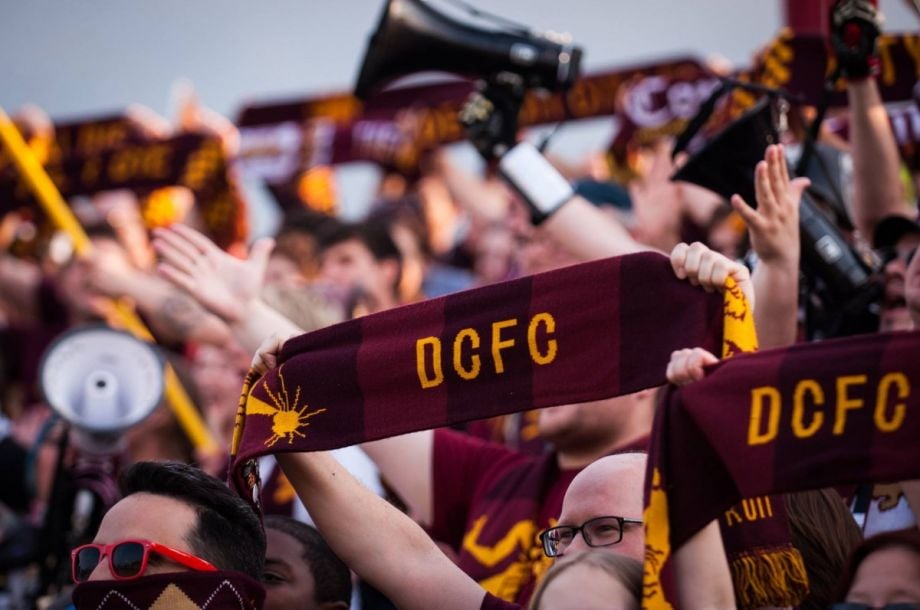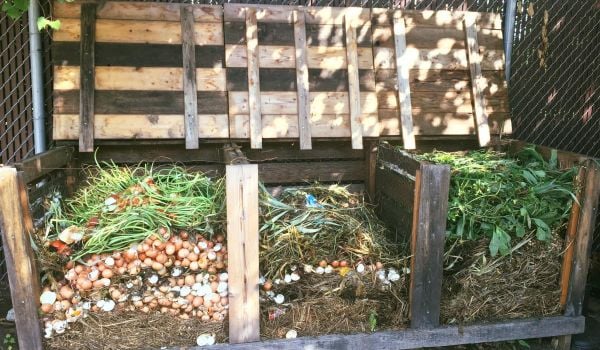Stadium subsidies aren’t what they used to be. In Hamtramck, Michigan, an enclave in the middle of Detroit, a historic stadium is eyed as the new home of the Detroit City Football Club, a semi-pro soccer team. But rather than rely on traditional public funding for the rehabilitation, organizers are crowdfunding between $750,000 and $1 million. Called a “community investment campaign,” the money is not a donation. It buys fans a tiered-level loan that will be repaid from the soccer club’s future revenue — with interest.
In a signal of their responsiveness to the community, DCFC organizers scheduled happy hours and other events to answer questions and listen to concerns — an especially important move since the 6,000-seat stadium abuts dense residential streets filled with two-story bungalows.
Altogether, the campaign — dubbed “the largest community-financed project in U.S. sports history” — stands in stark contrast to the development of the new NHL Red Wings stadium just five miles away, which has had a process more secretive, top-down and out-of-touch with local residents.
Behind the mantra “City ‘Til We Die,” the surprisingly fast rise of soccer in Detroit has become a touchstone for community and neighborhood development. Founded in 2012, the team, nicknamed “Le Rouge,” and its passionate fan base have grown out of their rented facilities at Detroit’s Cass Technical High School; they average about 3,500 attendees per game in stands designed for about 3,100. Fans cherish the tradition of boisterously parading from Harry’s Bar to Cass Tech before home games, and in just four seasons, DCFC tripled its annual revenue, up to an estimated $520,000 in 2015.
Its growth has coincided with the accelerating popularity of a recreational soccer organization founded by Sean Mann, one of the DCFC co-owners, in 2010. In the rec league, residents play on neighborhood teams throughout the summer, culminating in the “Copa Detroit” tournament. It’s grown from 11 teams and 300 participants in the first year to 34 teams and about 1,000 participants this year. Meanwhile, yet another semi-pro soccer team plays in nearby Pontiac. The Michigan Bucks have competed since 1995 and are owned by Dan Duggan, brother of Detroit Mayor Mike Duggan.
For its permanent home, DCFC has chosen the 79-year-old Keyworth Stadium in Hamtramck. The Roosevelt Street grandstands have an extraordinary backstory: Built during the Great Depression, this was one of the earliest projects of the Works Progress Administration in Michigan. Local high schools have played football games and hosted graduations here for decades. Abbott and Costello performed here. President Franklin D. Roosevelt spoke in Keyworth ahead of his 1936 election, and President John F. Kennedy did the same in 1960.
But today, the stadium is derelict, though youth teams still play there. Among the improvements that DCFC needs to make are structural repairs on the bleachers; one side of them is condemned. They also plan to replace the ragged 15-year-old artificial turf with real grass, renovate the restrooms and locker rooms, and update the lighting. The total rehab of the stadium is estimated at $3 million. But organizers don’t appear daunted: They already signed a 10-year lease with the Hamtramck school district, which owns Keyworth.
And the team is explicitly drawing on the community’s feeling for the stadium’s legacy in their crowdfunding campaign, dubbed “Make History, Save History.”
The campaign leverages the Michigan Invests Locally Exemption (MILE) Act, which was passed in 2013 to allow companies to accept loans from small investors, ranging between $250 and $10,000, so long as they are residents of Michigan. The MILE Act was explicitly designed to help businesses raise capital by exempting crowdfunded money from various securities laws. Businesses must already be in existence and have audited financials before it can take advantage of a MILE campaign. At the time of the law’s signing, Michigan was one of only four states to put something like this on the books.
The DCFC campaign, hosted on MichiganFunders.com, raised $250,000 from 125 investors in one month. While that cash doesn’t become liquid for DCFC until it hits $400,000, the organization will begin early work on the stadium, funded by its own reserves. It expects to open the 2016 soccer season in May with the first phrase of construction completed. One of the earliest matches is on May 28 against FC United of Manchester, which is owned and operated by community supporters — a similar funding model in England. This will be Manchester’s first match in the U.S. As a perk, investors in the Keyworth project will get a ticket to the game.
“This is your club,” Mann has told fans. “No one else in this country has done this.”
Indeed, the club’s campaign is expected to lead to the historic preservation of a beloved stadium, enhance the Hamtramck community and catalyze the growth of soccer in Detroit. DCFC organizers are talking about how they want to see it reach the pro level. But perhaps most radically, it is also setting a template for a sports team that doesn’t rely on taxpayer subsidies to grow. The money it raises from the public is willingly given, and — it bears repeating — it will be repaid with interest. How’s that for strengthening the loyalty a fan base has for its team?
At a time of heightened awareness about the growing boondoggle of using public money to pay for privately owned stadiums — even John Oliver has weighed in — Detroit’s innovative soccer community gives us even more reasons to cheer them on.

Anna Clark is a journalist in Detroit. Her writing has appeared in Elle Magazine, the New York Times, Politico, the Columbia Journalism Review, Next City and other publications. Anna edited A Detroit Anthology, a Michigan Notable Book. She has been a Fulbright fellow in Nairobi, Kenya and a Knight-Wallace journalism fellow at the University of Michigan. She is also the author of THE POISONED CITY: Flint’s Water and the American Urban Tragedy, published by Metropolitan Books in 2018.
Follow Anna .(JavaScript must be enabled to view this email address)




_600_350_80_s_c1.JPEG)











